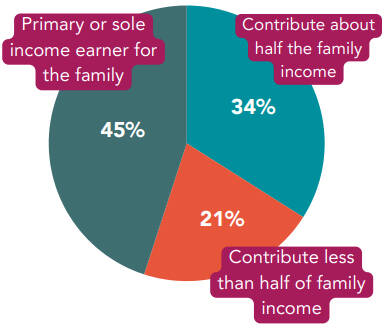About six per cent of health-care support workers say they rely on food banks or charity, while 11 per cent have faced housing insecurity, a union survey found.
The survey of more than 5,000 workers with Shared Health, Southern Health and the Winnipeg and Northern regional health authorities also found 59 per cent of respondents said they had cut back on household spending.
Fifty-six per cent reported being unable to save for the future, while 52 per cent said they had cut back on groceries, and 49 per cent had cut back on family activities.

Thirty-eight per cent of respondents reported taking on more personal debt, while 37 per cent said they had to drain their savings account.
Twenty-nine per cent reported having two or more jobs, with 76 per cent noting the second job is because of economic necessity.
Forty-five per cent of workers indicated they are their family’s sole or primary income earner, and 63 per cent reported they have dependents who rely on them.
Thirty-nine per cent of respondents said they work more than 40 hours per week.
The questions were part of a Canadian Union of Public Employees bargaining survey done in March.
More than 25,000 health support workers represented by CUPE Local 204 and the Manitoba Government and General Employees’ Union could walk off the job Tuesday. The workers include health-care aides, laundry workers, dietary aides, ward clerks, recreation co-ordinators and other support staff.
“The reality for front-line health-care support workers is that there is very little financial security in these jobs right now,” CUPE 204 president Margaret Schroeder said in a news release.
“Health-care support workers have worked through some extremely challenging times, and the economic situation for us continues to be dire.”
CUPE Manitoba president Gina McKay said there is no reason health-care workers should be struggling to get by.
“Manitobans have told government that fixing health care should be the No. 1 priority, and that should start with supporting the workers who are on the front lines every single day,” McKay said in the release.
A previous survey found 47 per cent of health-care support workers have been looking for “alternate employment” or plan to in the next year, and a combined 65 per cent said they were looking for a new job that is unrelated to health care or is in private health care.
fpcity@freepress.mb.ca